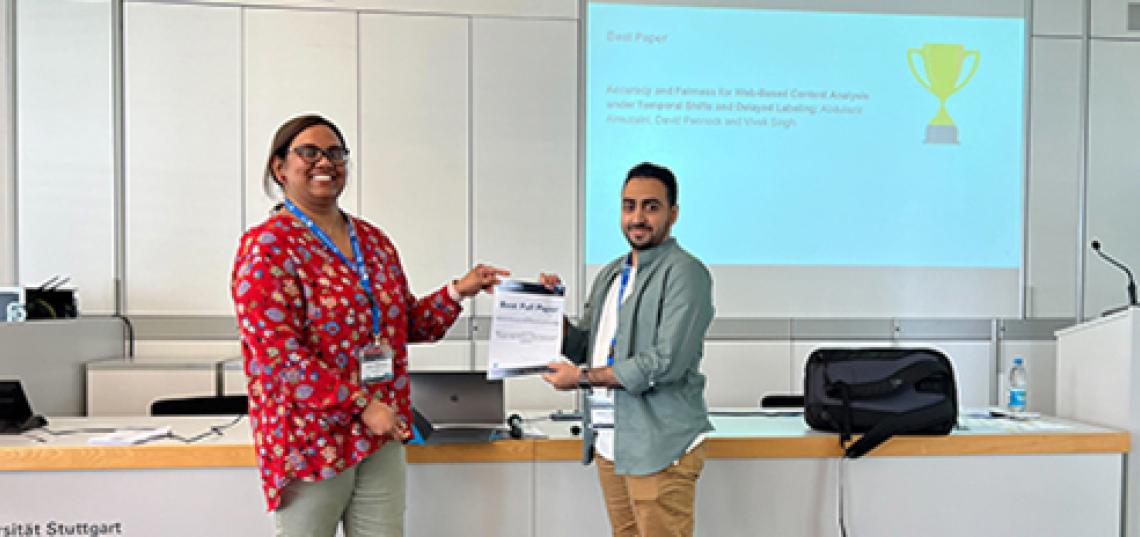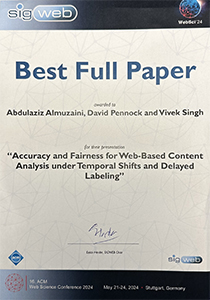
A study describing a new method to ensure that online content analysis algorithms, such as those detecting harmful speech, remain fair and accurate over time, has won the Best Full Paper Award at the 16th ACM Web Science Conference 2024. The conference, held on May 21-24, 2024, in Stuttgart, Germany, brought together experts in Web Science, an interdisciplinary field dedicated to understanding the complex and multiple impacts of the Web on society and vice versa.
The award-winning study, “Accuracy and Fairness for Web-Based Content Analysis under Temporal Shifts and Delayed Labeling,” was written by Abdulaziz Almuzaini, who recently graduated with a Ph.D. from the Department of Computer Science, Rutgers-New Brunswick School of Arts and Sciences, Professor of Computer Science David Pennock, and SC&I Associate Professor of Library and Information Science and CS graduate faculty Vivek Singh. Pennock and Singh were Almuzaini’s Ph.D. advisors.
“In the world of technology,” Singh said, “we often play catch-up with fairness, tweaking algorithms only after they’ve shown bias. Our research takes a different route. We’re not waiting for errors to happen; we’re one step ahead. Our team is developing intelligent algorithms that predict and prevent fairness issues before they affect anyone. It’s about ensuring fairness isn’t an afterthought—it’s built into the system from day one.”
The paper was published In Proceedings of the 16th ACM Web Science Conference (pp. 268-278). This award was given to only one paper out of 100+ submissions and includes a Euro 800 honorarium.
 “In the world of technology,” Singh said, “we often play catch-up with fairness, tweaking algorithms only after they’ve shown bias. Our research takes a different route. We’re not waiting for errors to happen; we’re one step ahead. Our team is developing intelligent algorithms that predict and prevent fairness issues before they affect anyone. It’s about ensuring fairness isn’t an afterthought—it’s built into the system from day one.”
“In the world of technology,” Singh said, “we often play catch-up with fairness, tweaking algorithms only after they’ve shown bias. Our research takes a different route. We’re not waiting for errors to happen; we’re one step ahead. Our team is developing intelligent algorithms that predict and prevent fairness issues before they affect anyone. It’s about ensuring fairness isn’t an afterthought—it’s built into the system from day one.”
The approach they report in the paper called “FairCast” estimates emerging changes in online behavior and adjusts the algorithms before they become outdated. “This estimation approach is particularly useful when there’s a lag in getting expert opinions on the data these algorithms analyze,” first author Almuzaini added. “The study shows that this proactive strategy can improve both the accuracy and fairness of such algorithms.”
Discover more about the Library and Information Science Department at the Rutgers School of Communication and Information on the website.
